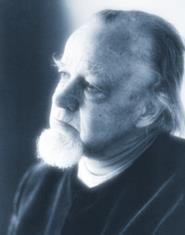The Breakdown in Philosophy and Science
Theme: if there are no absolutes, then the particulars, the individual things, have no meaning.
What is meant by universal? What is meant by particular? Examples?

Clear place we see this is in morals: “Who are you to be judge over us?” If no universal giving meaning to marriage and sex, then each man defines marriage and sex according to what is right in his own eyes.
Why is that the result?
If there is no absolute beyond man’s ideas, then there is no final appeal to judge between individuals and groups whose moral judgments conflict. We are merely left with conflicting opinions.
Schaeffer makes the point that it is not just morality that takes a hit without absolutes, meaning in existence itself, knowing that we know what we know, takes a hit without absolutes.
What were the characteristics of the non-Christian philosophers before the shift he describes in this chapter?
- Rationalists – man (though he is finite and limited) can begin from himself and gather enough particulars to make his own universals.
- Serious about reason – thought in terms of antithesis. A is A, and A is not non-A.
- Optimistic that man could find an absolute to give meaning starting with himself.
What were the shifts that came?
Shifts in science, shifts in philosophy and shift in theology.
Science
Move from the uniformity of natural causes in an open system to a uniformity of natural causes in a closed system. Everything within the cause-and-effect machine, including psychology and sociology.
Notice especially that the scientists who gave birth to the earlier great breakthroughs of science would not have accepted this concept. It arose not because of that which could be demonstrated by science, but because the scientists who took this new view had accepted a different philosophic base. The findings of science, as such, did not bring them to accept this view; rather, their world-view brought them to this place. They became naturalistic or materialistic in their presuppositions.
What is the effect of this presupposition?
Man becomes part of the machine. Life is pointless and devoid of meaning.
In moving to a completely closed system, Schaeffer says that “man disappears”? Why?
Everything is a part of the cosmic machine, including people. To say this another way: prior to the rise of modern modern science (that is, naturalistic science, or materialistic science), the laws of cause and effect were applied to physics, astronomy, and chemistry. Today the mechanical cause-and-effect perspective is applied equally to psychology and sociology.
What does this totally mechanized system do to the concept of freedom of choice?
“Love dies, there is no place for love in a totally closed cause-and-effect system.”
How is this different from a worldview where God determines all things according to the counsel of His will?
The mechanized cause-and-effect world led to another principle called “survival of the fittest.” What has been the logical conclusion of that concept?
Abortion of black babies. Abortion of only the girls or the boys. Social engineering is a more subtle gas chamber. As is socialized medicine…
Philosophy
The trend was from optimism to pessimism. Why?
Move from reason is king to feeling is king. Happiness is the trutha…
You see the tension between “lower story” – reason leads to the closed system, but we can’t live that way. So, gradual movement to the “upper story” – irrational “leap of faith” to give the basis for meaning without reason.
It became clear that those who held the rationalistic position on the sole basis of their own reason increasingly were forced to conclude that everything, including man, is a machine. But one could not hold simultaneously the concept of everything’s being a machine and the ideal of a person’s having freedom. Thus, the concept of a unified knowledge of what reality is (on the basis of reason alone)—which almost all previous thinkers had as their aspiration—was under great strain. By the time of Rousseau and his followers there was a tendency for the concepts (everything as a machine and man’s autonomous freedom) to split apart and go marching off in divergent directions.
There was discussion of making nature the moral basis, the idea of Natural Law. What’s the problem with that?
Nature is both cruel and non-cruel. “What is is right.” Leads to Sadism.
What was Hegel’s solution to the tension?
Synthesis rather than antithesis. Truth in both thesis and antithesis, so synthesize them. Another contradiction in the new synthesis and whole process starts again. Thus the universe and man’s understanding of it unfolds in a series of teachable moments. “In short, the universe with its consciousness – man – evolves.”
Man is the consciousness of the universe?
Is this not the mentality of our day? “Only the Sith deal in absolutes.”
Here, then, becomes the synthesis of the “upper story” and the “lower story”:
This equation of the impersonal plus time plus chance producing the total configuration of the universe and all that is in it, modern people hold by faith. And if one does in faith accept this, with what final value is he left? In his lecture at Acapulco, George Wald finished with only one final value. It was the same one with which English philosopher Bertrand Russell (1872–1970) was left. For Wald and Russell and for many other modern thinkers, the final value is the biological continuity of the human race. If this is the only final value, one is left wondering why this then has importance.
The unifying principle is biological continuity of the human race.
If that’s the unifying principle, then why same-sex marriage?
Leave a Reply